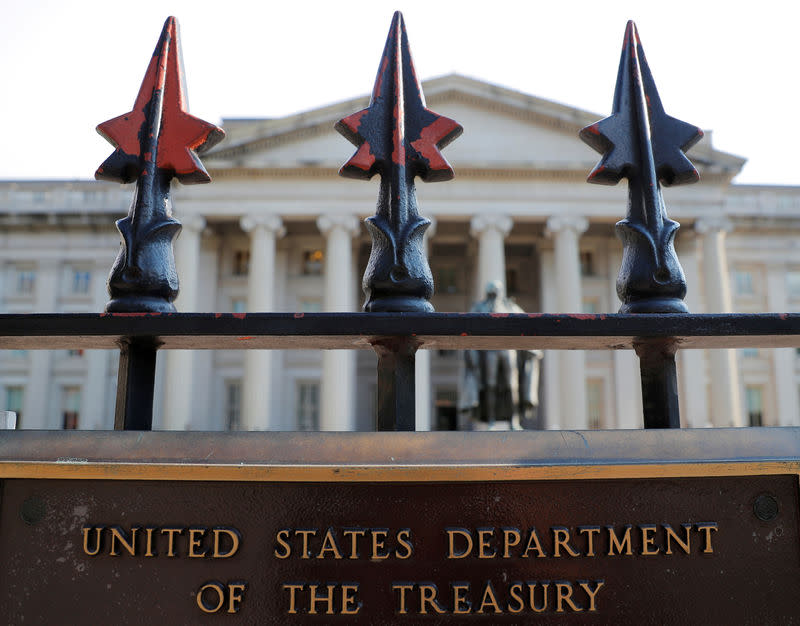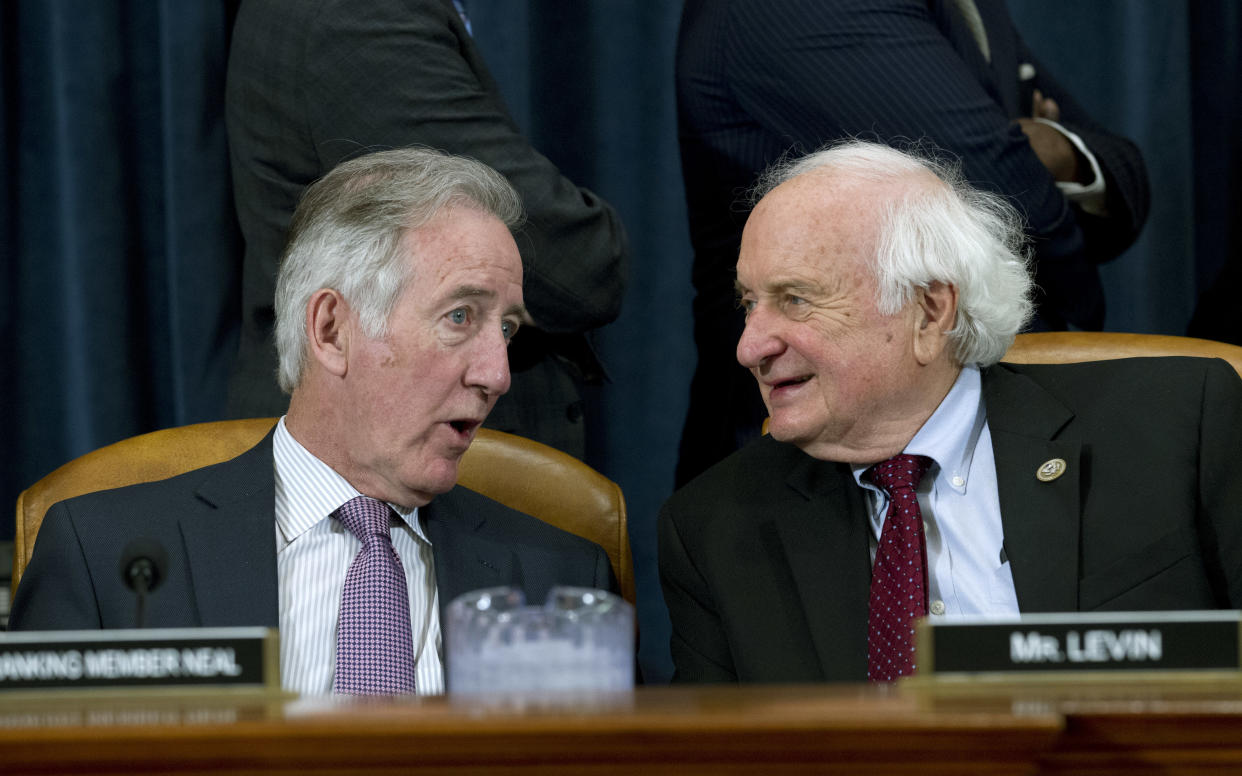A big fight is coming over Trump’s tax returns
Democrats seem to think a door has opened that will allow them to walk into the Internal Revenue Service, ask politely for President Trump’s tax returns, and walk out with a huge pile of documents Trump will no longer be able to keep private.
Fat chance.
Taking control of the House of Representatives will, in fact, allow Democrats to exercise their right to request Trump’s tax returns. Congress passed a statute in 1924, following the Teapot Dome scandal, that allows the chairman of the House Ways and Means Committee to obtain anybody’s tax return from the Treasury Department, which oversees the IRS. Republicans who have controlled all House committees during the last two years have declined to do so. But with control of the House flipping to Democrats following this year’s midterm elections, the incoming Ways and Means chair, Richard Neal of Massachusetts, has indicated he’ll go after Trump’s tax returns straightaway.
Trump, of course, is the first president to withhold his tax returns since Richard Nixon began the practice of releasing them in 1973. Trump says he can’t release his returns, because they’re being audited. Besides, Trump told reporters on Nov. 7, “they’re very complex. People wouldn’t understand them.” But audits don’t prevent Trump from releasing his returns, and many critics think Trump won’t release his returns because they show aggressive tax dodging, and maybe worse.
We may not know for quite some time. While Neal can ask for the returns, Trump can instruct his Treasury Secretary, Steven Mnuchin, to say no. “Congress has a legitimate right to ask for the information as part of its oversight role,” says Steve Rosenthal of the nonprofit Tax Policy Center, a tax lawyer and former counsel to Congress’s Joint Committee on Taxation. “What is less clear is whether the president would turn over his returns voluntarily. I think he’ll resist. They could construct some executive argument saying this is a fishing expedition.”

It could reach the Supreme Court
If Trump does resist, the House would have to go to court to force him to turn them over his returns. Lower courts might be likely to side with the House. But if Trump appealed, the case would land at the Supreme Court, newly refreshed with two Trump appointees, Neil Gorsuch and Brett Kavanaugh. “The new conservative majority Trump himself helped create will be deciding,” says Georgetown law professor Victoria Nourse, former chief counsel to Vice President Joe Biden. “If I’m his lawyer, I’d say it’s a separation of powers issue.”

Trump’s most recent appointee, Brett Kavanaugh, has an expansive view of presidential power and could side with a Trump request to keep his tax returns private. That might not carry the whole court, but Trump might also use the courts to drag the whole thing out as long as possible. “He could try to stall for two years,” says Nourse. “Congress might never get the information. The courts can be slow.”
Making them public
If the House does eventually get Trump’s tax returns, the next question is whether they could legally make them public, which is an unsettled matter that revolves around whether there’s a legitimate legislative reason to make such information public. There’s some irony here, because in 2014, House Republicans made public the tax returns of 51 nonprofit organizations the Ways and Means chairman, Dave Camp, had obtained from the IRS using the same statute Neal would use to get Trump’s returns. So Republicans established a precedent for going public. And if Trump’s returns didn’t find daylight through legal means, it’s hard to believe somebody wouldn’t leak them to the press.
If Trump’s returns do become public, they wouldn’t automatically answer all relevant questions about Trump’s finances. If Trump has received loans or other types of financing from Russian sources, for instance, it won’t be spelled out on his returns, which aren’t required to go into that level of detail. “It might be a little hard to find some of the things people would like to see,” Rosenthal says. “It won’t say ‘loan from oligarch’ on Schedule B.”
But there would be juicy bits, all the same. At a basic level, ordinary taxpayers would get to learn Trump’s effective tax rate, which is most likely a lot lower than it is for ordinary workers, given the many tax breaks available to real-estate developers. It’s even possible Trump’s tax bill has been $0 for some years. The president’s returns would also indicate whether he might be benefiting financially from his position as president, through income flowing to properties such as his Washington, D.C., hotel. Taxpayers would get to see how much Trump donates to charity, and tax experts would be able to conduct thorough analysis to determine if Trump’s tax strategy skirts the law. Maybe that’s what Trump is hoping to avoid.
Confidential tip line: rickjnewman@yahoo.com. Click here to get Rick’s stories by email.
Read more:
Rick Newman is the author of four books, including “Rebounders: How Winners Pivot from Setback to Success.” Follow him on Twitter: @rickjnewman
